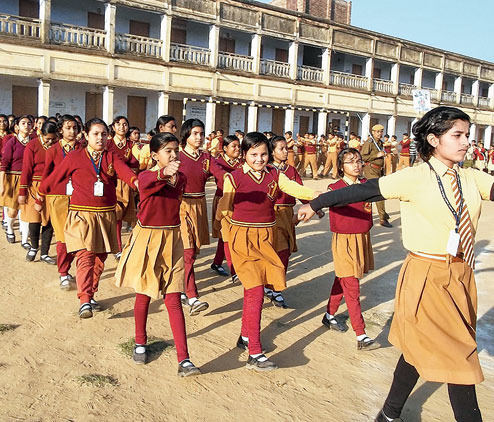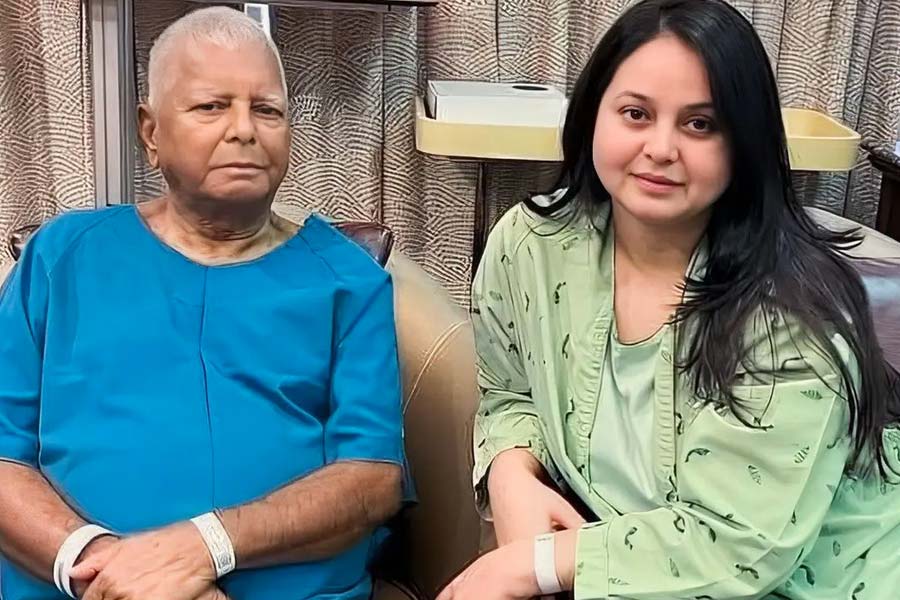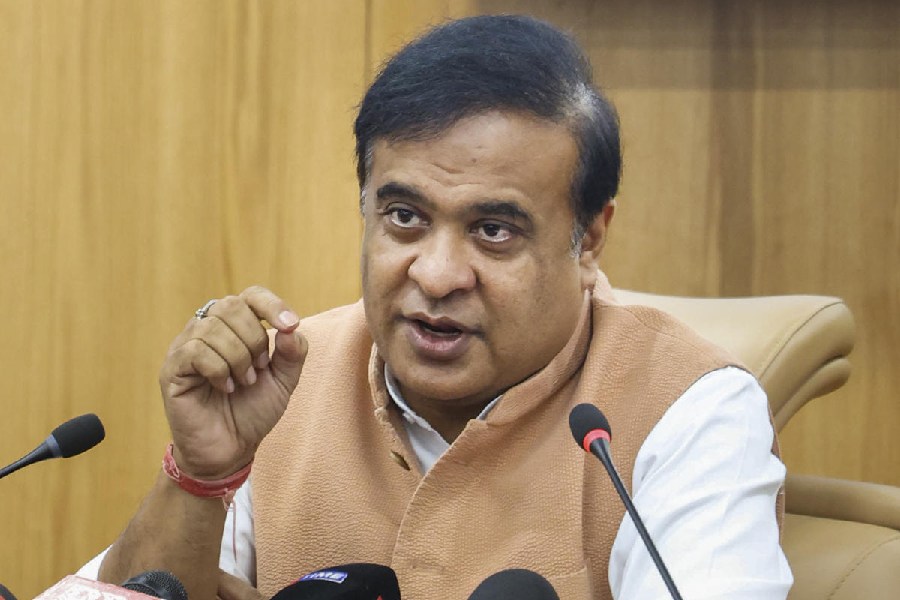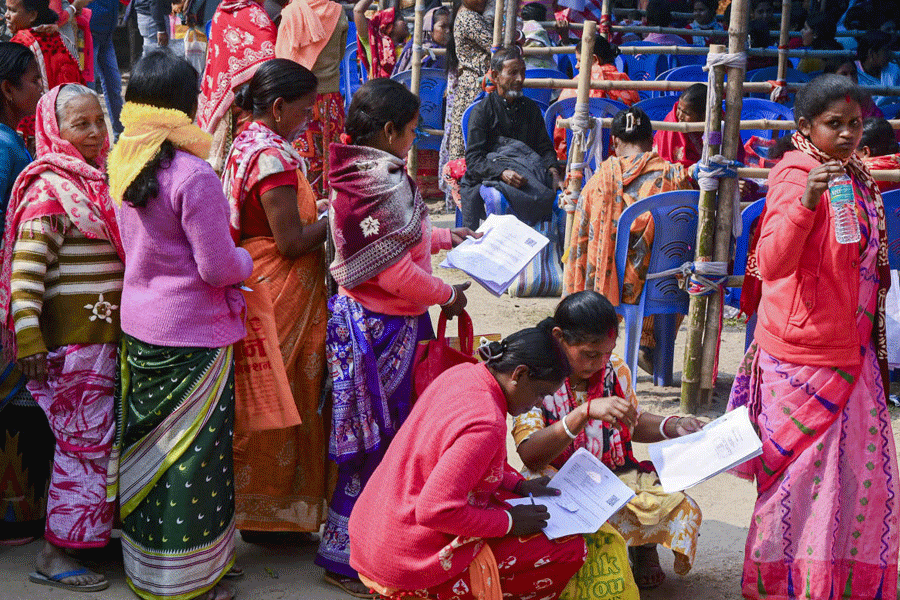 |
Single-gender schools are considered old fashioned by many. But I believe that there should be room for different kinds of schools — boys’ schools, girls’ schools, co-ed schools, day-boarding schools, residential schools, schools on wheels and monitored ‘home schools’. As long as children are given opportunities to work and play and generally interact with the other gender, things should work out fine as there are special advantages to each kind of school.
It is an established fact that boys and girls respond differently to the same situation. One of my erstwhile colleagues, who had taught in boys’ schools all her life, was at her wit’s end when she joined our all-girls’ school. She concluded that though boys were more boisterous, they were far easier to manage as they were direct and straightforward, did not go into dark, silent moods to teach the teacher a lesson and did not indulge in sulks or giggles. Having taught girls all my life, I know that even among girls there are widely different patterns of emotional responses.
Generally speaking, in a girls’ school, girls grow up believing that they can do just about anything as well as boys and often even better, possibly because boys are not around to cramp their style or inhibit them in any way. Nor do teachers with fixed mindsets have the chance to behave in gender- biased ways in the classrooms, laboratories and playground. In fact, it is quite amusing to hear young girls speak dismissively of their brothers and their male friends and comment on their lack of maturity. But when we teachers begin to probe, we find that some of the girls carry quite a bit of gender-related baggage. This begins and ends with a nagging sense of discrimination even at home.
An example of this was articulated very simply by a girl who said that though her parents pampered her more than her brothers, she was invariably left out when there were discussions about political or business matters or when decisions were to be made about household finances. On questioning others about their perception of discriminatory behaviour at home, another student said that she had noticed that her father and brother were always served first at the dining table but I didn’t get the impression that she minded that too much. I wish I had asked.
I realize that even today the most pervasive kind of discrimination is against women. Currently, we are mostly concerned about men’s violence towards women but the old inequalities still persist in innumerable different forms, including in traditional customs and practices. When I was a young girl, I often wondered why there were no festivals dedicated to women. Moreover, I had never heard of a man fasting for his wife’s well-being. It appeared strange to me that we in Bengal observed Bhratridwitiya (Brothers’ Day) and Jamaishashti (Sons-in-law’s Day) yet there was no Bhagnidwitiya (Sisters’ Day) or Boumashashti (Daughters-in-law’s Day). The answer that I was given was that the greatest festival of all was Durga Puja and that we had pujas for the goddesses, Lakshmi, Kali and Saraswati. This answer did not satisfy me, as I am sure it would not any little girl. What about the living flesh and blood women? They were certainly not celebrated. Ever.
Talking of goddesses, in the mid-Nineties, I was gifted a book by a feminist student called Goddesses in Everywoman: Powerful Archetypes in Women’s Lives. The author, Jean Shinoda Bolen, MD, was a Jungian analyst and psychiatrist. She projected a ‘binocular vision’ of women. Women, she maintained, were shaped by both inner and outer forces — archetypes and stereotypes. She represented the former through Greek goddesses. The latter, she said, were determined by society. I found the book quite fascinating and subsequently read its companion volume, Gods in Everyman: Archetypes That Shape Men’s Lives. Giving examples of warrior and hunter goddesses and dancer and craftsman gods, Shinoda argued that life would be easier and happier if women and men submitted to their inner forces and just went along their natural grain instead of worrying about living up to their conventional gender roles.
While discussing our own mythology and Hindu gods and goddesses in the classroom, we revelled in the triumph of the goddesses over their consorts, were surprised that Radha kept forgiving her lord’s dalliances with the gopis and were utterly fascinated by the concept of ardhanarishvara. The different natures of the two sisters, Mary and Martha, in the Bible also come to mind. When Jesus visited their home, Mary busied herself in household preparations while Martha sat at Jesus’ feet, immersed in his teachings. They are interpreted by modern readers as homemaker and feminist spiritual scholar respectively.
Many women leaders adopt a strident tone and an aggressive stance in order to cope with a male-dominated world. Margaret Thatcher’s steely leadership approach was interpreted as an ‘overcompensation’ to establish her authority over her male colleagues. She had famously declared that she owed nothing to women’s lib. It is said that Thatcher achieved what she did despite her gender. Now, after 30 years, it is being felt that the hour has arrived for women politicians in the United Kingdom. Theresa May (Conservative) and Yvette Cooper (Labour), says a columnist of The Guardian, could be future contenders for the prime-ministerial post. Interestingly, unlike Thatcher, they do not compete on male terms. May is an out-and-out feminist — known for her bold thinking on the economy and for her shoes, while Cooper, who won the shadow cabinet elections, is known to give top priority to family life. She refused to run in 2010 because her children were small. Both appear comfortable being women and if one of them is chosen as prime minister in the next elections, she will be chosen because she is a competent woman and not because she measures up to a man.
Every March in recent years, it comes home to me that women had been gifted with their own exclusive ‘annual festival’ after all. To be accurate, it is not really a festival where people celebrate womanhood but a day when we especially reflect on our status in society. There are articles, seminars and chat shows on the increasing violence against women, the glass ceiling in the corporate world, empowerment of women and so on. And yes, women ‘achievers’ are honoured and acknowledged — from the fields of performing arts, business, politics, education and social service. There is no parallel International Men’s Day — they have not felt the need for one yet. I suppose we have to keep observing Women’s Day till there is genuine equality and mutual respect between the sexes. This can be achieved only if opportunities are created for the two genders to be engaged with each other and attitudes of both men and women towards each other and themselves change and evolve. Shah Rukh Khan’s grand gesture on March 8 this year, of asking for actresses’ names to appear first on film credit rolls, was thoughtful and generous indeed. But then, he is ‘King’ Shah Rukh and even if his name appears last it really would not matter. And has the Bible (Matthew 19:30) not told us already that “the first shall be last and the last shall be first”?
I often find young girls, while fighting for their rightful place in family and society, demanding to be given the same opportunities and the same recognition that boys are given at their age. I want my students to be aware of their own worth and to realize that if they excel at something they are more than likely to be recognized. Also, I strongly believe that assertiveness must be encouraged. Girls need to question why there should be gender categorization in areas such as acting, academics and chess. I was quite indignant one year when newspapers announced that one of our students had ranked ‘first among girls’ — women after all, have been excelling in academics for years. We learnt the other day that in 1876, Chandramukhi Basu, on account of her gender, had to be given special permission to appear for the F.A. examination of the University of Calcutta. She, the only girl taking the examination, had ranked first but the university had to hold a series of meetings to decide whether her results could be published. Now we understand better why Sita Anantha Raman had dedicated her book, Getting Girls to School: Social reform in the Tamil districts, 1870-1930, thus: “Amma and Appa with love and namaskaram for educating me”. Anantha Raman is a Professor of History in Santa Clara University, US. Her mother told her children stories from the epics, read poems and novels and sang “impassioned” verses by bhaktas. She evidently had a deep understanding of social and religious issues but according to Tamil custom in the 1920s, she was not given a formal education. No doubt we have come a long way since, but we all know that we still have a long haul ahead.
On March 8, I was asked to share some thoughts on the air from the perspective of a person who has been teaching girls all along. In view of all the unspeakable wrongs that are done to women everywhere, every single day, my comments — even as I was speaking — seemed extremely trite. I spoke about stereotypical gender images, about mothers who should educate their sons and foster gentle nurturing qualities in them, about senseless hostility between the sexes and how insulting it should have been for Indira Gandhi to be called ‘the only man in her cabinet’ —and finally how we should be proud of our feminine traits. But very soon, my defence mechanism swung into high gear and I began to think that these were important issues after all.
It feels good to teach girls and watch them quietly getting ready to take on an unequal society.











